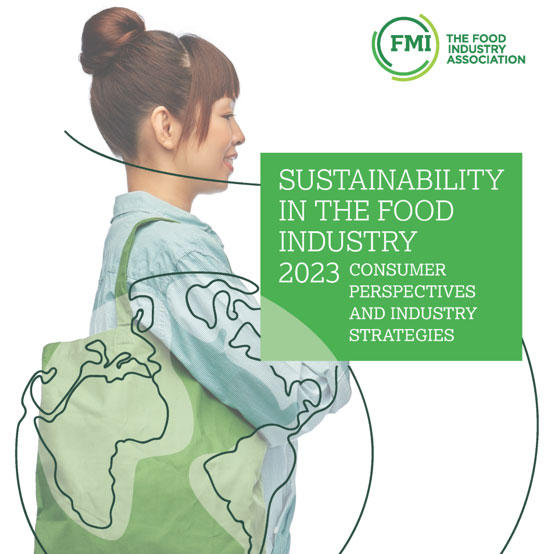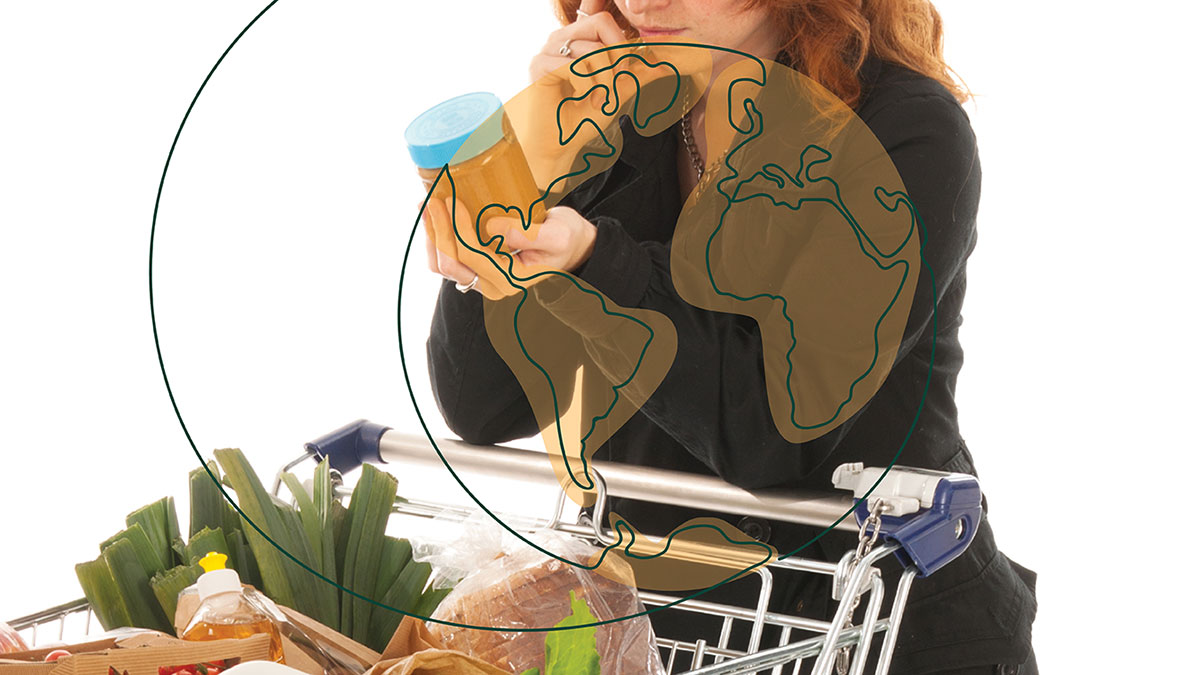By: Andrew Harig, Senior Director of Sustainability, Tax & Trade, Food Marketing Institute

To this day, I can still hear my mom scold, “Make sure you wash your hands before you come to the dinner table.” It’s easy to say the age-old rule of “wash your hands before you eat” has been engrained in many of us. But, what if I told you there’s a bigger lesson to be learned about the benefits of clean hands?
By collecting partially-used bars of soap from hotels, Derreck Kayongo discovered how local efforts to reduce waste can globally save lives through his foundation, The Global Soap Project. His expertise in environmental sustainability and global health led to developing strategic partnerships with hotels to recycle used bars of soap and distribute new soap bars to more than 90 countries vulnerable to disease.
Each year, two million kids die globally from preventable diseases and illnesses. By providing soap to kids at schools, refugee camps, and midwives, The Global Soap Project creates change in the lives of poor countries like Malawi. Over the last six years, the organization has given away 10 million bars of soap and reduced infection rates ranging from 30 to 90 percent. Without knowing it, our tossing a bar of soap into a garbage bin impacts socioeconomic statuses around the world, as well as, contributes to the world’s universal pollution levels.
In the food industry, we know how local action can make a global impact. By using creativity to address a critical issue, food retailers are identifying solutions to food waste through donation programs and fresh prepared foods. According to the 2016 Power of Fresh Prepared/Deli, grocers use fresh prepared items in stores to reduce leftovers and prevent waste. Additionally, the Food Waste Reduction Alliance, a cross-collaboration of industries, seeks to increase food donations to those in need, recycle to divert food waste from landfills, and reduce the overall amount of food waste generated across various sectors. A 2014 industry analysis reports more than 40 percent of wasted food from grocery stores is recycled or donated, which in turn feeds 23 percent of hungry families. Through these efforts, the food industry has seen how concentrated action in our communities can lead to feeding families, enriching lives and creating a more sustainable world.
FMI and GMA annually host the Global Sustainability Summit to provide companies throughout the food and consumer products industry with the tools, connections, and solutions to move their sustainability programs to the next level. This year’s event will focus on how local action can have a global impact. Hear from CEO of the National Center for Civil and Human Rights and Founder of The Global Soap Project, Derreck Kayongo, discuss his success as a social entrepreneur and how seeking opportunity can improve your environment. Register for the Global Sustainability Summit and discover more sessions on sustainability at www.fmi.org/sustainabilitysummit.


 Industry Topics address your specific area of expertise with resources, reports, events and more.
Industry Topics address your specific area of expertise with resources, reports, events and more.
 Our Research covers consumer behavior and retail operation benchmarks so you can make informed business decisions.
Our Research covers consumer behavior and retail operation benchmarks so you can make informed business decisions.
 Events and Education including online and in-person help you advance your food retail career.
Events and Education including online and in-person help you advance your food retail career.
 Food Safety training, resources and guidance that help you create a company food safety culture.
Food Safety training, resources and guidance that help you create a company food safety culture.
 Government Affairs work — federal and state — on the latest food industry policy, regulatory and legislative issues.
Government Affairs work — federal and state — on the latest food industry policy, regulatory and legislative issues.
 Get Involved. From industry awards to newsletters and committees, these resources help you take advantage of your membership.
Get Involved. From industry awards to newsletters and committees, these resources help you take advantage of your membership.
 Best practices, guidance documents, infographics, signage and more for the food industry on the COVID-19 pandemic.
Best practices, guidance documents, infographics, signage and more for the food industry on the COVID-19 pandemic.
